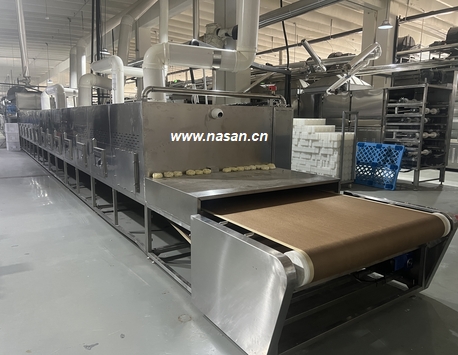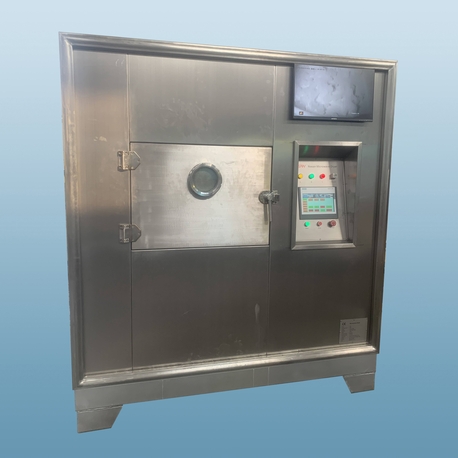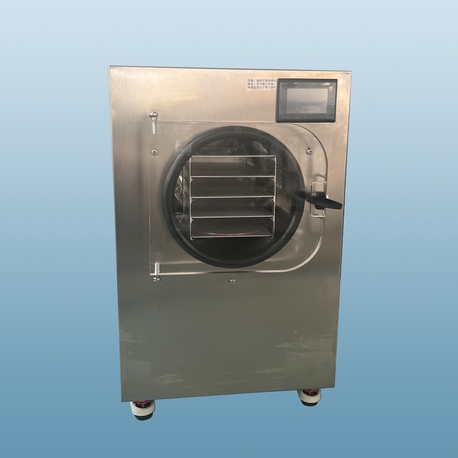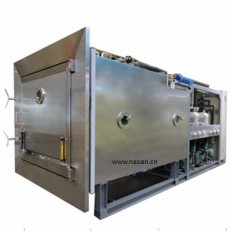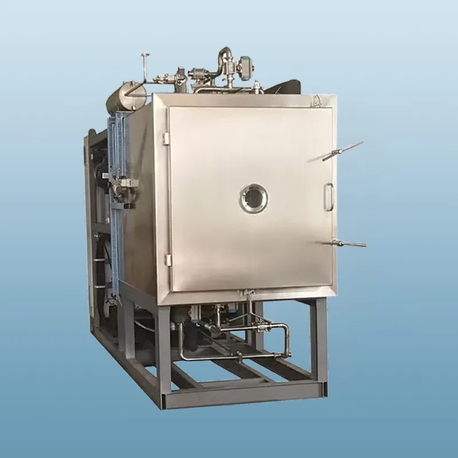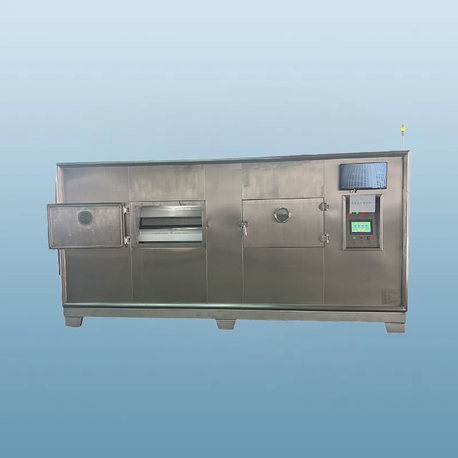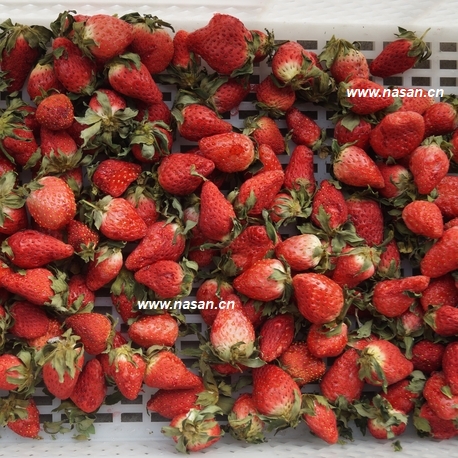In the world of food preservation, few methods are as timeless and effective as dehydration. By removing moisture, we inhibit the growth of microorganisms, significantly extending the shelf life of delicious, nutritious fruits. Whether you're a home enthusiast looking to make healthy snacks, a small business owner scaling up production, or a large corporation requiring massive throughput, understanding the right equipment is crucial. This comprehensive guide delves into the world of fruit dehydrator technology, exploring everything from the initial fruit dehydrator machine price to the complexities of a custom fruit drying solution.
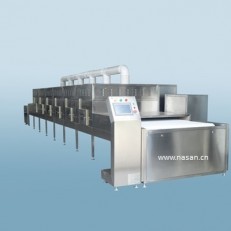
What is a Fruit Dehydrator and How Does It Work?
A fruit dehydrator is a device designed to remove the water content from fruits through the consistent application of low heat and air circulation. Unlike baking, which uses high heat to cook food, dehydrating gently dries it out, preserving enzymes, vitamins, and minerals while concentrating the natural sugars and flavors.
The basic principle involves three key elements:
Heat: A heating element raises the temperature inside the unit to a specific, controlled range (typically 95°F to 165°F or 35°C to 74°C for fruits).
Airflow: A fan circulates the warm air evenly throughout the drying chambers, ensuring consistent results and preventing hot spots.
Airflow Management: Vents allow moist air to escape, making room for dry air to continue the process.
This combination ensures moisture is efficiently drawn from the fruit's interior to its surface, where it evaporates. The result is a chewy, shelf-stable, and intensely flavorful product.
Understanding the Investment: Fruit Dehydrator Machine Price
The fruit dehydrator machine price is perhaps the first consideration for any buyer, and it varies dramatically based on type, capacity, and features. There is no one-size-fits-all answer, as the market caters to a vast range of needs.
Home Hobbyist Models ($50 - $300): These are compact, often stackable tray designs with limited capacity (4-10 trays). They are perfect for beginners and families looking to dehydrate garden surplus or make snacks. Price is influenced by materials (plastic vs. stainless steel), temperature control precision, and wattage.
Semi-Pro / Small Business Models ($300 - $2,000): This category includes larger countertop units and small cabinet dryers with greater capacity (10-20 trays). They often feature more robust construction, digital controls, and more powerful fans for efficiency. The fruit dehydrator machine price here reflects durability and higher output for farmers' markets or small-scale retail.
Commercial Units ($2,000 - $15,000+): When moving into a commercial fruit drying system, the price increases significantly. These are high-capacity cabinet or tunnel dryers built for continuous operation. They boast industrial-grade components, advanced airflow design, precise humidity controls, and stainless steel construction for easy cleaning and compliance with food safety standards.
Industrial Machinery ($20,000 - $500,000+): The fruit dehydrator machine price for true industrial fruit dryer units is a major capital expense. These are not appliances but engineered systems—often conveyor belt or large-batch cabinet dryers—designed for processing hundreds of pounds of fruit per hour. Pricing depends on automation level, energy efficiency technology, and custom engineering.
Scaling Up: The Commercial Fruit Drying System
A commercial fruit drying system is the backbone of any business serious about producing dehydrated fruits at scale. It moves beyond simple drying to encompass a full workflow focused on efficiency, consistency, and food safety.
Key characteristics of a robust commercial fruit drying system include:
High Capacity: Designed to handle large volumes with multiple large trays or continuous loading.
Durability: Constructed from food-grade stainless steel to withstand constant use and rigorous cleaning.
Precision Control: Digital interfaces for setting exact time, temperature, and (in advanced models) humidity levels to perfectly match different fruits (e.g., delicate strawberries vs. dense apples).
Efficiency: Engineered for optimal airflow and heat transfer to reduce drying times and energy costs, which is critical for profitability.
Compliance: Built to meet local and national food processing and safety regulations.
Investing in a proper commercial fruit drying system ensures product quality is maintained batch after batch, which is essential for building a trusted brand.
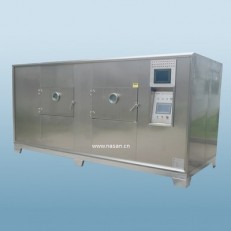
High-Volume Processing: The Industrial Fruit Dryer
For large-scale food processors, agribusinesses, and contract manufacturers, an industrial fruit dryer is a necessity. This category represents the pinnacle of dehydration technology, where the primary goals are maximum throughput, automation, and operational efficiency.
An industrial fruit dryer often takes one of two forms:
Tunnel Dryers: Fruit is loaded onto trays placed on carts, which are then slowly moved through a long tunnel with controlled temperature zones. This allows for continuous loading and unloading.
Conveyor Belt Dryers: A continuous mesh belt carries the fruit through different temperature and airflow zones. This is highly automated, with input and output systems for non-stop operation.
Features of an industrial fruit dryer include:
Full Automation: Integrated loading, drying, and cooling conveyor systems.
Energy Recovery: Sophisticate systems that recycle heat from one section to another, drastically reducing energy consumption.
Process Monitoring: Computerized control systems that log data for every batch, ensuring traceability and perfect repeatability.
Hybrid Technology: Some advanced dryers combine convection (air) drying with other technologies like microwave or vacuum to drastically speed up the process.
Choosing the right industrial fruit dryer is a complex decision that impacts the entire production line.
Tailored to Your Needs: Custom Fruit Drying Solution
Not every product or production facility fits into a standard model. Unique fruit varieties, specific texture requirements, space constraints, or integration with existing equipment often necessitate a custom fruit drying solution.
A reputable industrial fruit dryer manufacturer will offer engineering services to design a system tailored to precise needs. A custom fruit drying solution might involve:
Unique Tray Design: Creating specialized trays for whole fruits, purees (for fruit leather), or halves.
Modular Design: Building a system that can be expanded as business grows.
Specific Heat and Airflow Profile: Engineering the airflow pattern and heating elements to perfectly suit a high-moisture or delicate fruit.
Specialized Construction Materials: Using specific grades of stainless steel or coatings for fruits with high acidity.
Opting for a custom fruit drying solution, while a larger initial investment, can lead to superior product quality, higher yields, and greater long-term efficiency.
Choosing the Right Partner: Industrial Fruit Dryer Manufacturer
Selecting an industrial fruit dryer manufacturer is as important as selecting the machine itself. The right partner ensures you get a reliable machine, proper technical support, and valuable service throughout the equipment's lifespan.
When evaluating an industrial fruit dryer manufacturer, consider:
Experience & Reputation: How long have they been in business? What do their customer testimonials say?
Industry Expertise: Do they understand the specific challenges of drying food products?
Service & Support: Do they offer installation, training, and maintenance services? What is their parts availability and response time for repairs?
Testing Capabilities: Can they run tests on your specific product to determine the optimal drying parameters before you buy?
References: Ask for and contact references who have purchased similar equipment.
A strong relationship with a trustworthy industrial fruit dryer manufacturer is an invaluable asset for any commercial or industrial operation.
Common Challenges and Frequently Asked Questions (FAQs)
Q1: Why is my dehydrated fruit too hard or too sticky?
This is usually due to incorrect temperature or drying time. Too high a temperature can case case hardening, where the outside becomes tough and leathery while the inside remains moist. Too low a temperature or insufficient time will leave the fruit pliable but sticky. Precise control, which is a key feature of a good commercial fruit drying system, is essential to avoid this.
Q2: How do I clean and maintain my dehydrator?
Home Units: Always unplug. Wash trays in warm, soapy water. Wipe down the interior and heating element housing with a damp cloth. Ensure everything is completely dry before reassembling.
Commercial/Industrial Units: Follow the manufacturer's strict protocols. This typically involves using food-safe cleaners and sanitizers on all stainless steel surfaces. Regular maintenance includes checking fans, motors, heating elements, and sensors to ensure they are in spec.
Q3: What is the typical lifespan of a commercial or industrial dryer?
With proper maintenance, a well-built commercial fruit drying system can last 10-15 years. An industrial fruit dryer, built with even more robust components, can often last 20+ years. The longevity is directly tied to build quality from the industrial fruit dryer manufacturer and consistent maintenance.
Q4: How can I improve the energy efficiency of my drying operation?
Pre-Treatment: Blanching certain fruits can break down skins and speed up drying time.
Slice Consistency: Using a mandoline or mechanical slicer ensures uniform thickness for even drying.
Load Fully: Run your machine with full loads to maximize energy use per cycle.
Energy-Efficient Tech: Invest in newer models or a custom fruit drying solution that incorporates heat pump technology or closed-loop heat recovery systems.
Q5: Are there any specific safety standards for these machines?
Absolutely. In the US, equipment must comply with NSF/ANSI standards. In Europe, CE marking and compliance with EC Machinery Directive are required. Any reputable industrial fruit dryer manufacturer will design and build their equipment to the relevant safety and food contact material standards for their target markets.
The journey into fruit dehydration is exciting, from a simple home unit to a complex industrial fruit dryer. The key to success lies in understanding your needs, from the initial fruit dehydrator machine price consideration to the technical specs of a commercial fruit drying system. Whether you choose a standard model or a fully engineered custom fruit drying solution, partnering with a reputable industrial fruit dryer manufacturer will ensure your investment delivers delicious, high-quality, and shelf-stable products for years to come. By being aware of common pitfalls and maintenance needs, you can ensure your operation runs smoothly and efficiently, turning fresh fruit into a valuable, preserved commodity.



